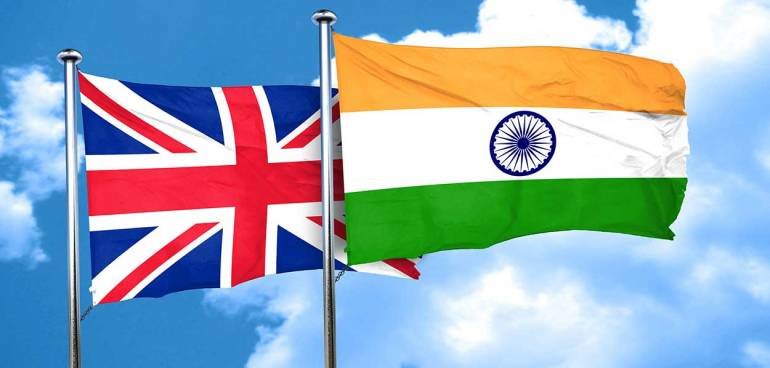Statistically speaking, the Non-Resident Indian (NRI) population represents one of the top five diaspora communities globally. While the love for London’s weather is not for everyone (including me), I have spent the last decade in the UK.
Since childhood, I was fascinated by architecture and engineering. As a computer engineer and due to my work and travel, I started seeing how simple things and multiple concepts come together to make something special. In my view, our bridge from India to UK is based on two pillars: that of culture, and skills and services.
Our approach towards family, community and love stands out as a representation of our great culture
We are, by no means, perfect. We have our differences and just like a family we also like to disagree with each other. However, what stands out is how our culture helps us to resolve these differences. As Indians we are brought up to put friends and community first before we put ourselves. Many a time during disagreements we will put others first to keep the relationship in harmony. Respect for elders and seniors, love for friends and family alike, attitude of first deserve and then desire, learnings from so many stories from one of the oldest civilisations in the world.
Family and friends are treated alike weather in joy or overcoming a situation. Our diaspora community brings this amazing life changing culture to UK and there is a constant appreciation about this by other citizens. We see a growth of Indian cultural events across UK, weather it is celebrating festivals or driving a vegetarian culture or a fusion yoga class or discussion on verses of religious texts; we are together, just like back home.
NRIs contribute heavily to the UK’s highly skilled workforce, particularly through the NHS, financial services and technology sector
This pillar drives and fuels UK and Indian economy alike. Medicine, financial and technology services have a majority of senior positions filled with NRIs. There is a wave of senior figures and bodies who acknowledge Indians as backbone for these services. A lot of Indian companies have expanded into UK with specialised service offerings, with Ola Cabs being the latest example of skills and services being offered to UK consumer / organisational ecosystem.
However, a not lot of Indian start-ups have looked at UK market for their expansion. While Ola is taking on Uber in UK, I believe we are just scratching at the surface of huge entrepreneurial opportunity across every field / industry. This opportunity may just come from Indian students who have studied here or plan to study in UK. Indian students were major place holders amongst non UK students for top universities here across medicine, financial services and technology sector. The exciting prospect was always the opportunity to settle in UK.
While this has been changed somewhat due to stricter UK immigration laws, I personally believe with Brexit, NHS staffing shortages, boost in emerging technologies and services sector will drive a reduction on visa rules for non-EU citizens. As that evolves, India has the game changing opportunity to provide the expertise or services required.
While the pillars of bridge are Culture and Skills, the road connecting the two great nations is one of collaboration, in all areas
UK is at a very unique position right now and is working on trade deals with other nations. India has a great opportunity to leverage this moment and get a great deal with focus on immigration and services. Earlier this year, UK government announced the doubling of its national credit support for UK businesses exporting to India. This means additional £4.5 billion will now be available for UK companies exporting to India as well as Indian buyers of UK goods and services. The current bilateral trading relationship is in excess of £15.7 billion. It is number 11 on UK to India export and number 19 when UK imports from India.
With India being on path to becoming world’s third largest economy in next decade, this number is bound to move into top ten if not top five if a proper deal is struck post Brexit. To make this possible, India has to improve in ease of business ranking and (dare I say) transform institutional taxation for Foreign Direct Investment (FDI) companies. Even though UK is one of the top three investors in India (behind Mauritius and USA), Brexit may well create movement from EU to India. That said, collaboration opportunities become tenfold when you look at various sectors which require partnerships around security (physical and cyber), agricultural, manufacturing, services, space and technology (the race for Artificial Intelligence – a topic for some other time)
Once (not if) we open this bridge based on culture, skills and collaboration, we will witness truly something special, a dosti to take India and UK above other bilateral jodis.


